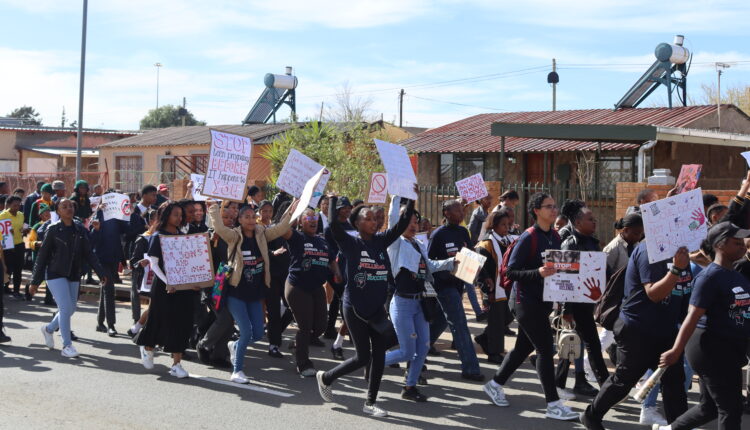Pathway to curb teen pregnancies
Story by: Thato Mgoma
Pictures by: Thato Mgoma
Teenage pregnancies have taken a toll in Northern Cape, but ‘Pathways to Change’ and its partners have stepped in with solutions focused on avoiding the emergence of such occurrences.
Pathways to Change is a non-profit organization led by women. It focuses solely on strengthening health systems. According to the NPO, many causes of teenage pregnancies include substance abuse, peer pressure, family obstacles, and socioeconomic status, to name a few.
To address teenage pregnancy issues in the Province, Pathways to Change worked with the Northern Cape Department of Education to host a “Teenage Pregnancy Dialogue” at Moremogolo TVET College in August.
Stakeholders in attendance were Pathways to Change personnel, the Northern Cape Department of Education, the Department of Social Development, Grassroots Edge, the South African Police Service (SAPS), and learners from eleven schools in the Northern Cape.
Before the dialogue commenced, attendees marched from the Seochwareng Street circle to Moremogolo College in Nobengula Street—a demonstration against teenage pregnancy.
According to Seithati Maboi, director of Pathways to Change, nine hundred (900) learners between the ages of fifteen (15) and nineteen (19) fall pregnant every quarter. She said on average, twenty out of the nine hundred learners are between 10 and 14 years old. “This means that we’re not only having a teenage pregnancy problem, but statutory rape is a problem as well,” said a concerned Maboi.
Sister Shushu, a nurse, cautioned that falling pregnant at a young age was dangerous because the body is not mature enough to carry babies at that stage. She further explained that pregnancy affected one’s mental health, which could result in giving birth to a stillborn.
Shushu said breastfeeding plays a considerable role in a baby’s growth, and depriving a baby of this vital need might result in malnutrition.
High blood pressure and the shortage of iron are also side effects of teenage pregnancy. The nurse advised learners to take contraceptives if they are sexually active.
Ntombizodwa Ndlovu a grade 11 learner from Tshireletso High School shared a testimony about her pregnancy journey and how she struggled, “Having a baby as a teenager is difficult. You cannot choose between your baby and school because they are both important.”
SASSA Manager Lebogang Cindi says, ideally, he would prefer learners not to receive advice on preventing pregnancy because he does not expect learners to be engaging in sexual activities despite this being a reality. Cindi emphasized that it was preferable to have a child after tertiary education. “I want to pay social grants but not for your babies. I want to pay for your needs,” said Cindi to the audience.
Learners from different schools debated: “Should pregnant learners be expelled from school?”. The topic was met with mixed reviews, where some felt that pregnant learners should be expelled from school because teachers were “not midwives”. Some of the debaters disagreed with the expulsion proposal and argued about children’s right to education.
Moremogolo TVET College students gave information about pre-exposure prophylaxis (PrEP), which can help reduce the chances of getting exposed to HIV and other infectious diseases. The college students emphasized their point by insisting that “prevention was better than cure.”
After the dialogue, the attendants visited different health stalls, where officials gave more information about prevention, HIV, and other diseases. Some nurses conducted screen tests.


Comments are closed.